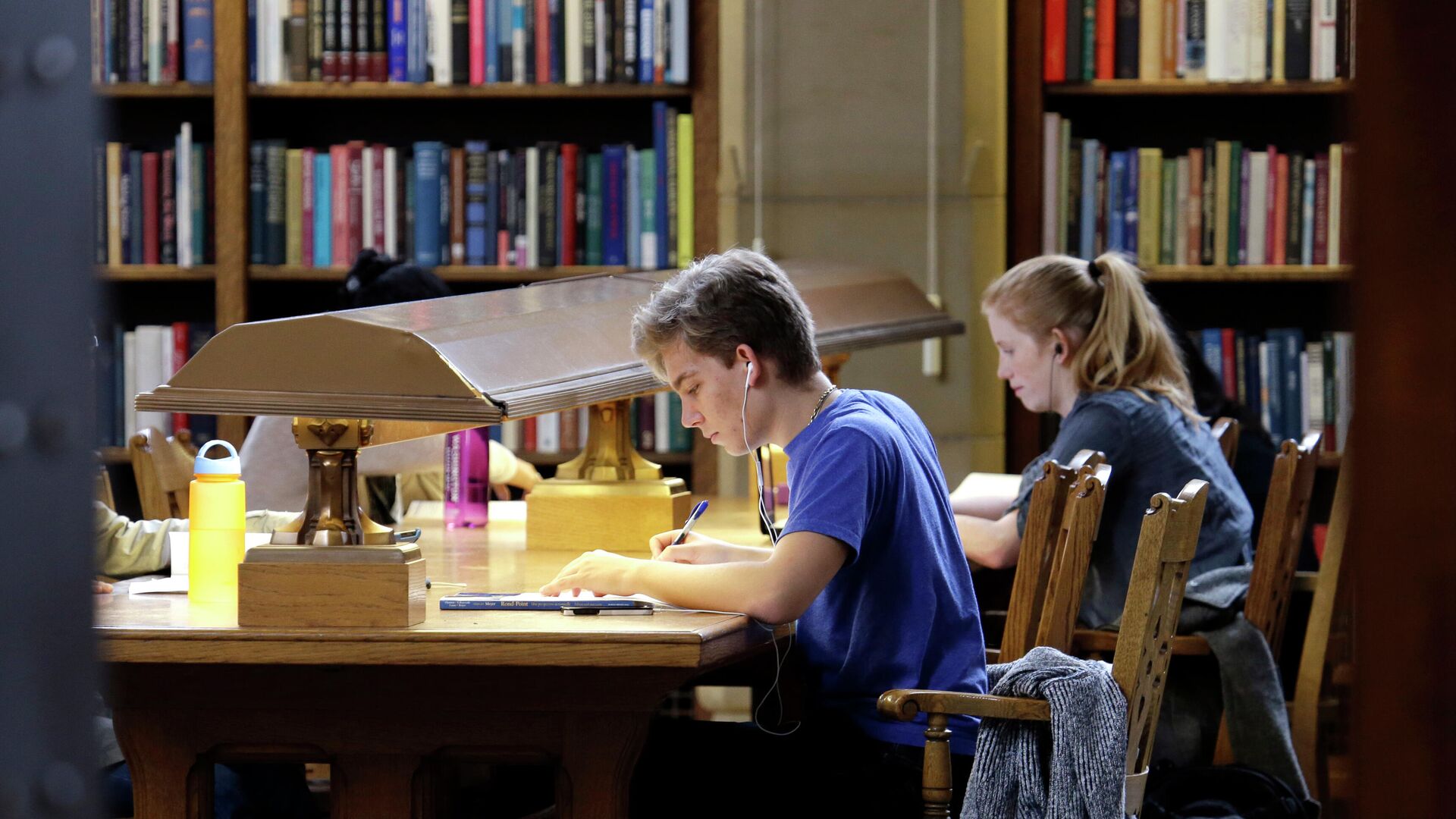'Crazy', 'See' & 'Lame': University of Washington Lists 'Problematic' Words in Inclusivity Guide

© AP Photo / Elaine Thompson
Subscribe
Recently, many politicial and educational institutions have offered their own inclusivity guides, illustrating a strikingly different viewpoint on commonly used words. According to some, even words such as "Christmas" and "apple pie" might be considered offensive and/or racist.
New guidelines for inclusive language have been introduced by the University of Washington, rolling out dozens of words that were deemed "problematic" as regards sexual orientation, age, gender or disability.
The guide highlights words such as "grandfather", "housekeeping", "lame", "see", "crazy", "ninja", "guru" or "spirit animal" as "problematic", offering some alternatives for those willing to promote a linguistically inclusive environment.
For example, words such as "crazy" and "lame" are considered "ableist", whereas using "ninja", "guru" or "mantra" may be racially unethical.
"In reference to office work, this language can feel gendered," the guide reads when it comes to the words "housekeeping". "It carries a fraught history and connotation of women’s traditional domestic role as housekeepers."
The guide also advices against using the word virgin "because of the strong association to a woman who has not had sex, and the negative and emotionally charged stereotypes associated with the word."
Why should one avoid "grandfather"? The guide's answer refers to the constitutional mechanism passed by seven southern states during Reconstruction to deny black people the right to vote. It created literacy and property restrictions on voting, but exempted those whose grandfathers had the right to vote before the American Civil War.
“'Grandfather clause' originated in the American South in the 1890s as a way to defy the 15th Amendment and prevent black Americans from voting," it reads.
Phrases that include the word "man", such as “manpower”, “man hours” or “man-in-the-middle”, are also considered undesirable because they are not inclusive, and "thus sexist".
It is also recommended that one refrain from using the word "preferred" when it comes to describing pronouns or sexual orientation, since it may imply that it is something a person can choose or is optional.
"As creators and editors of website content, we have a responsibility to carefully consider the language we use in our documentation and its impact on the diverse community we serve at the university and beyond," the introduction to the guide reads. "Therefore, we are accountable for ensuring racist, sexist, ageist, ableist, homophobic, or otherwise non-inclusive language are not within the materials and resources online."
The recommendations have already faced a wave of criticism, as have the many similar initiatives that were rolled out earlier across the world with the intention of making one's language more "inclusive".
"We’re ‘educating’ a bunch of crybaby idiots!" one user wrote, commenting on the initiative.
"Everything is problematic if you're creative enough," another one noted sardonically.
The initiatives to make the language more inclusive have surfaced in the UK military, the European Commission and in many universities internationally. Practically every time, they meet strong backlash with critics accusing the innovators of "wokery" and even blasting them for trying to "cancel" conservative traditions.
